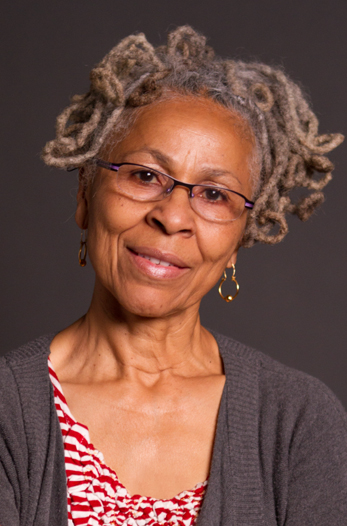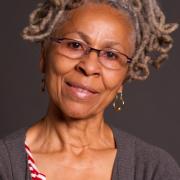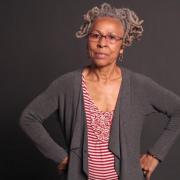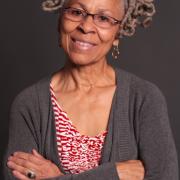
Profile
Mary Helen Washington has been a professor in the university's Department of English Language and Literature since 1990. Washington, who graduated with her Ph.D. from the University of Detroit in 1976, has focused her work primarily on African American literature.
Among her many distinctions, Washington has been awarded five honorary doctorates and earned six fellowships, including a Ford Foundation Fellowship and a Wellesley Center for Research on Women Fellowship. She has been a Smithsonian Scholar in Residence and has won the Richard Wright Award for Literary Criticism and the Lyndhurst Prize.
At the university, the professor serves as faculty sponsor for In Process, a nationally distributed academic journal that publishes graduate students' work. She also instituted Diasporan Dialogues, in which graduate students present their own academic work so that faculty can provide helpful critiques.
Since her first publication, the 1979 edition of Black-eyed Susans and Midnight Birds: Stories By and About Black Women, Washington has tirelessly dedicated herself to the advancement of women of color in her field. Her work on Anna Cooper, Dorothy Sterling, Zora Neale Hurston, Alice Walker and others has been highlighted in her 27 articles and essays, 18 reviews and 36 lectures over the past 26 years. In addition she has published four books and is currently collaborating on a fifth.
Video & Transcript
My name is Mary Helen Washington and I’m in the English Department.
I got interested in writing about communists because I grew up Catholic. As a child out of the 1950s I grew up in that world that was terrified of the atomic bomb- talking about the cold war period, the red scare period, the McCarthy period, and in catholic schools you actually even got anti-communist comic books. Being a catholic also meant that I was tremendously interested in injustice and the ways in which injustice worked and that put me on the track of wanting to know more about the association between communists and black people in this country.
What had been said over and over again was that black people, especially black writers, black intellectuals, were the dupes of communists- that they didn’t really embrace communism. And for years and years I worked on these writers as kind of a-political writers or writers that were interested in race, but not necessarily interested in a kind of race radicalism; but if you were a black writer, where did you get reviewed in the 1950s? Who debated black literature? Who theorized black literature? Who cared about black literature? Well, you need to go and look at all the communist publications from the 1950s in order to understand that and that’s what I discovered- that when you began to really understand black writers of the 1950s you had to understand that they were very much on the left, maybe almost exclusively on the left.
This is the period almost like no other in the history of the United States where people who were intellectuals really had to look over their shoulder and see where the FBI was and then they had to look over the other shoulder to see, where was the CIA? This is a very interesting part of the research because people who were in the communist party, around the communist party, anywhere close to the communist party didn’t want to admit any of those associations. Interestingly enough, the artist Elizabeth Catlett, she told me in an interview, “Oh yes, I was a communist,” but you can’t say that, you can’t write that and that’s what I heard over and over again. It was a challenge to try to figure out how I could say these writers or these artists were communists when they refused to admit that they were. Another part of the practice of my research is reading through FBI files. Everything is blacked out that they don’t want you to know about so you have to kind of try to figure out what does this mean, what does this mean, but there’s always a little gem in FBI files that tells you something about what was happening to black literary figures. So I find out that there’s real pressure on black literary people, black intellectuals to soft pedal race, to really soft pedal race in the 1950s.
One of my efforts is to get African American anthologies and literary histories to change. All of these anthologies when they get to the 1950s they sort of collapse and they won’t even mention FBI surveillance and being told what you can write and what you must take out of your books. So that means that they cannot talk about the ways in which African American literature is being produced and being pressured and being changed by these politics.
I’m always kind of looking for where are those progressive elements in the culture, where is that happening, and if it’s happening I want to be there to see if I can theorize it, understand it, help it to grow.
 ,
,  ,
, 





